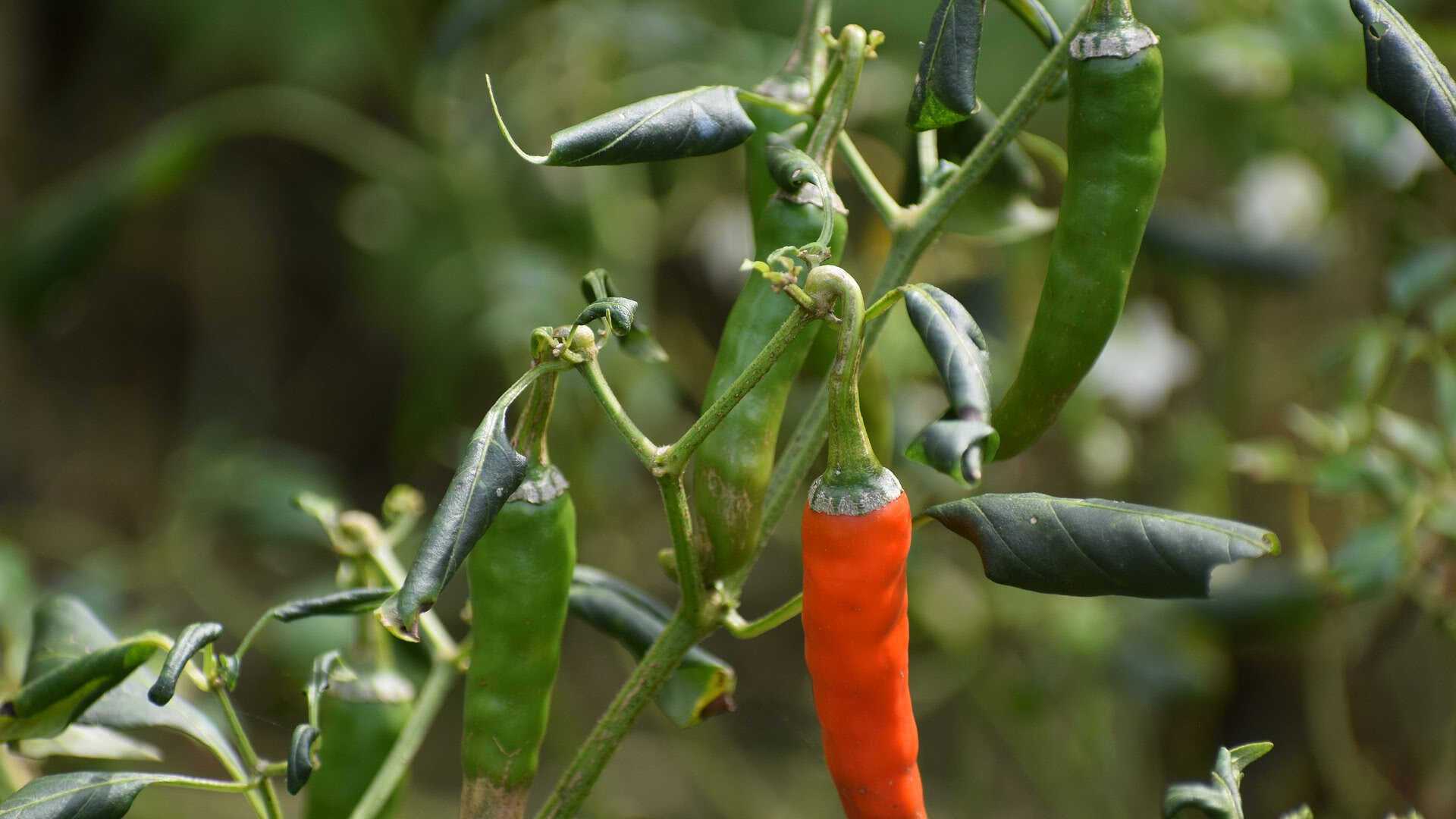Chili leaves turning yellow & falling off

Causes for Chili loses leaves
Many causes and problems are easy to get under control. Keep calm and investigate the causes. You can certainly still save your chili. Check this problems first:
Waterlogging
First, you check how damp the earth is. Incorrect watering behavior is the main reason why Capsicum plants are entering the chili heaven. Drill your finger deep into the soil. It is not unusual for moisture to accumulate in the lower part of flower pots. Waterlogging causes roots of chillies to rot quickly. In this case you prefer to plant the chilli in a new, permeable soil. Remove the old soil first. Read the article about watering chillies correctly.
Water shortage
Too little water has similar symptoms to too much water. Therefore, use your index finger to check whether the lower layer of earth is fart-dry. It is enough to feel only little moisture. The best way to describe good soil moisture is with tobacco moisture. This refers to the tobacco from which cigarettes are made.
When dry, leaves wither and hang down. If poured early, they recover quite quickly. You can also train your plants to deal with a lack of water. Water them now and then only when their foliage is sagging.
Chlorine and lime
There is usually too much of both in the tap water. Chlorine causes chlorosis and is visible through yellow leaves. Lime increases the pH value, which makes it more difficult for plants to absorb nutrients. A good way to avoid these problems is to mix tap water with osmosis or distilled water. Rainwater also solves the problem with hard and chlorinated water.
Lack of heat and sun
Chillies don’t like it cold and dark. When growing on the stone windowsill, it is often overlooked that this is a cold bridge in the growing pot. A frequent cause of death in young plants. Permanent temperatures below 16 °C are not only bad for growth, but also lead to susceptibility to diseases.
A lack of light is also not good for chillies. The consequence of a too dark environment is that the plant sheds its leaves. You can prevent this by a bright location of at least 9 hours of direct light. Artificial lighting for plants helps in the dark season.
Signs of deficiency
If the nutrients are too low, chili plants will grow sickly. Keep in mind that chili plants are low in nutrients. Later you have to transplant the chillies and start fertilizing. In a separate article we have described the different fertilizers. Lack of nutrients can lead to many other problems.
Overfertilization
Over Fertilization is usually done with too large a quantity of nitrogen. Problems occurring directly during fertilization are usually due to dry soil in which fertilization is carried out. Nutrient salts then drift too quickly into the roots and damage them. Visibly it will hang the leaves the short time later fall off.
Frost
Chillies usually shrink at less than 8 °C. At - 0.8 °C at the latest, all Capsicum plants bless the time. Cold harms chili plants, frost kills them. A small exception are Rocotos which can cope with cool temperatures for a short time.
Pests
Examine your plant carefully to see if there are any small animals on it. Especially the underside of the leaf should be examined with a magnifying glass. If you discover fine spinning fibers when spraying the plant with water mist, you are dealing with nasty spider mites. Immediate pest control is then necessary.
Fungal diseases, bacteria and viruses
An infestation with harmful microorganisms can often be recognized by stains. Yellow, brown or black spots with a sharp border indicate a larger problem.
If the plant disease spreads too strongly, the leaves fall off in rows. The only remedies are usually pesticides: fungicides against fungi, bactericides against bacteria and virucides against viruses.
Prevention
In any case, it is better to protect your chillies against plant diseases as a preventive measure.
- Observe crop rotation
- Avoid wetting the chillies with water before dark.
- Do not compost incoming plants
- Wilted leaves and damaged plant parts should be disposed of quickly.
- Give plant-strengthening agents
- Maintaining plants well Keeping them healthy and vital
